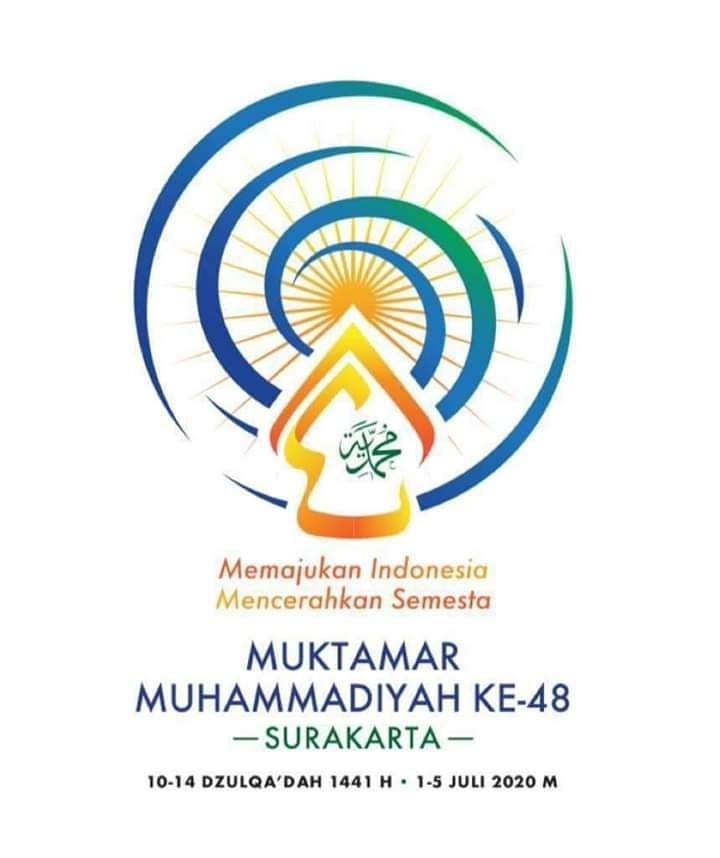MUHAMMADIYAH. ID, BUKITTINGGI -General Chairman of the Central Board of Muhammadiyah Haedar Nashir visited West Sumatra to attend the inauguration of Campus III of Universitas Muhammadiyah Sumatra Barat (UMSB) and launching of SM Corner of Bukit Tinggi, and to give public lectures at Institut Agama Islam Negeri (IAIN) Bukittinggi and the Padang Panjang Thawalib Foundation.
When delivering a public lecture at Graduate Program of IAIN Bukittingi, Haedar delivered a public lecture on “Islamic Politics in the National and Global Politics Constellation.”
Haedar stated that Muslims may not withdraw to confront political struggles, particularly in this changing world. For instance, the development of the People’s Republic of China becomes one of the superpower countries.
“If Muslims engages in a myopic political orientation about foreign issues without noticing the world constellation, they will be increasingly marginalized in the midst of geopolitical waves,” declared Haedar on Friday (6/9).
In front of students and lecturers of Graduate Program of IAIN Bukittinggi, Haedar added that the Islamic world has yet consolidated after the Arab Spring.
“Indeed, Islamic countries such as Saudi Arabia, Qatar, and Iran are in high tension,” he mentioned. Egypt confronts political turbulence, so do Palestine, Pakistan, and the OIC which are powerless to unite the Islamic world.
“In the midst of the situation, Syria suffers and no one knows when the conflict ends,” asserted Haedar. Besides, Iraq and Iran are in a war. “Indeed, ISIS emerges as a ghost. The conflicts are getting complicated,” he added. When all political analysts believe that ISIS is a manipulation, some parties received and agreed with its ideology,
Hence, Haedar queried what Islamic politics will do. “We may not underestimate the world’s changes and political-economic constructions. For instance, politics and other factors have triggered conflicts in this nation,” he asserted.
Another example is that the Union of Soviet which had its triumph could shattered in pieces, so could Yugoslavia. “Political frictions and dynamics may not ravage Indonesia as a great nation, its diversity, and its system,” emphasized Haedar.
He inserted that the Islamic politics is in the process of ideology which gets stuck in political traps instead of arranging strategic plans to achieve the development of Islam.
Haedar also revealed that there are three views of Islamic politics, namely integralistic Islamists, secular liberals, and moderates. “Unifying these perspectives in Indonesia is not easy,” he maintained.
He informed that Muhammadiyah is actualization of Islam, namely darul hadi wa syahadah. “The agreement is in line with Islam because Pancasila as the ideology of Indonesia is also in accordance with Islam,” expressed Haedar.
Politics is a part of muamalah duniawiyah (a worldly matter) so that it should be noticed from the dimension of the development and possess values.
In the context of the life of the nation, even though Muslims are a majority, many Islamic political parties cannot do a lot of things. “If our political patterns are exclusive, the construction of victory will remain a problem,” stressed Haedar.
Meanwhile, Haedar contended that people need to be economically empowered.
“Dhuafa mustadzafin economically becomes a weak huge group, while some small groups govern economy – politics,” said Haedar.
It needs endeavors to enhance the people’s economy.
Haedar inserted that reinforcement of human resources can be undertaken through education. He also reminded that political struggles should be performed properly. “In order that Muslims are not divided by politics, we may not destroy one another. Supporting one another should be our new culture, especially youths’ culture.


